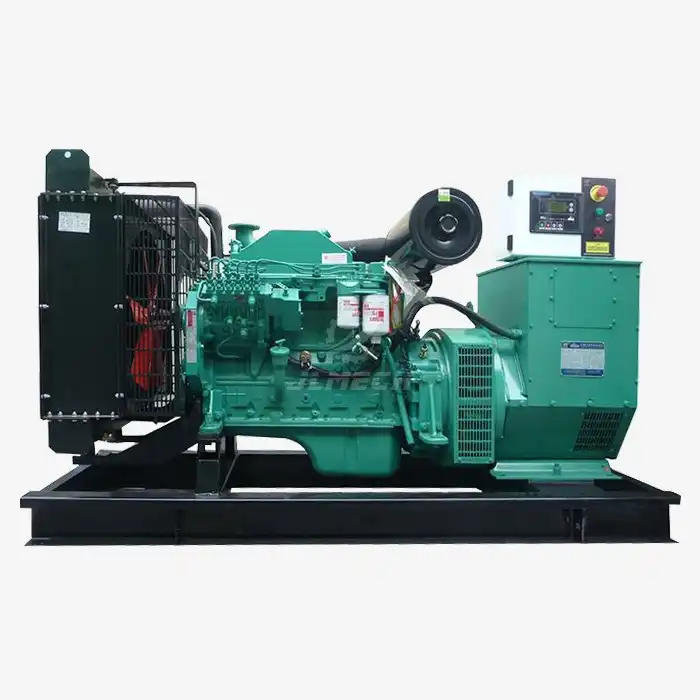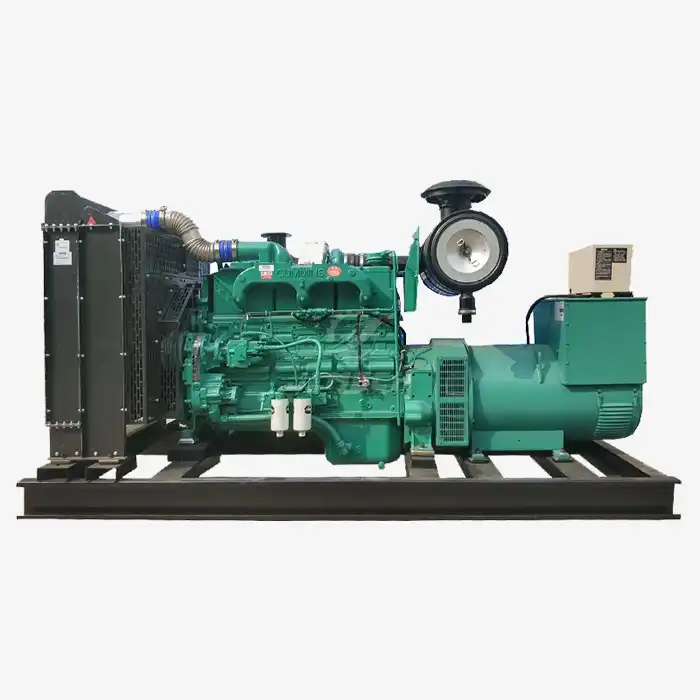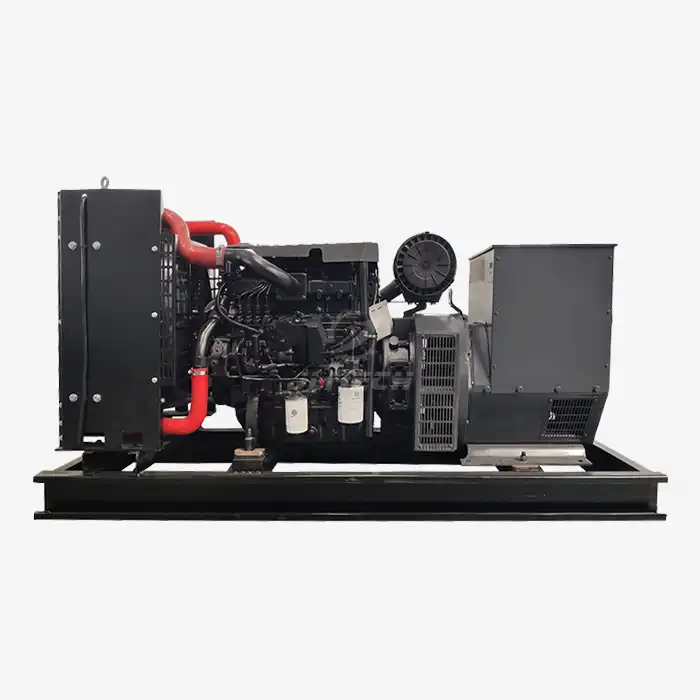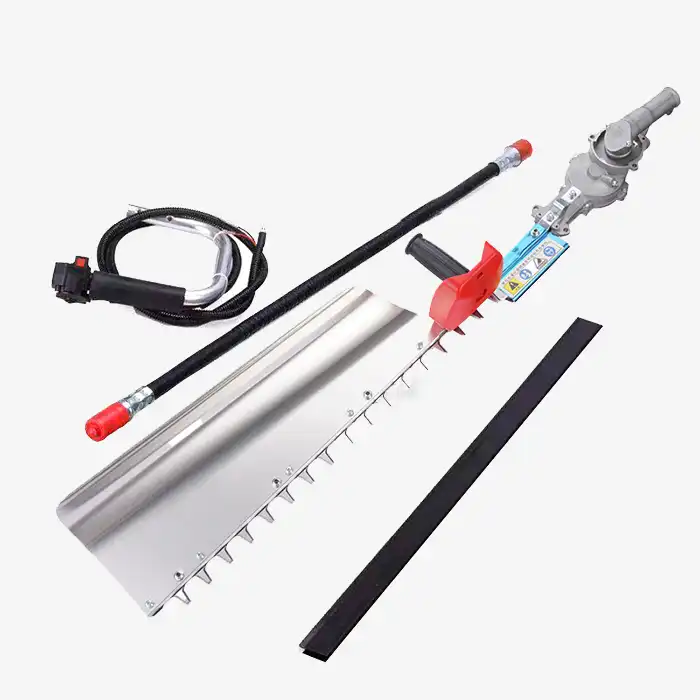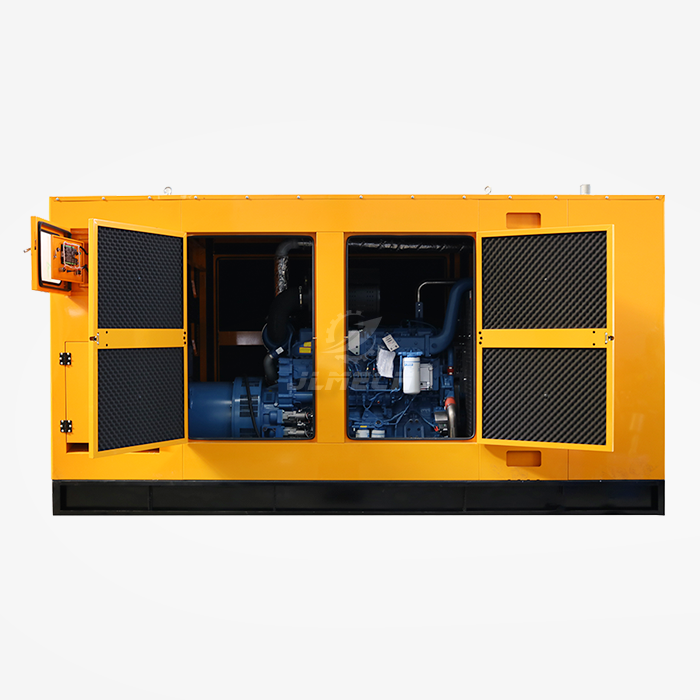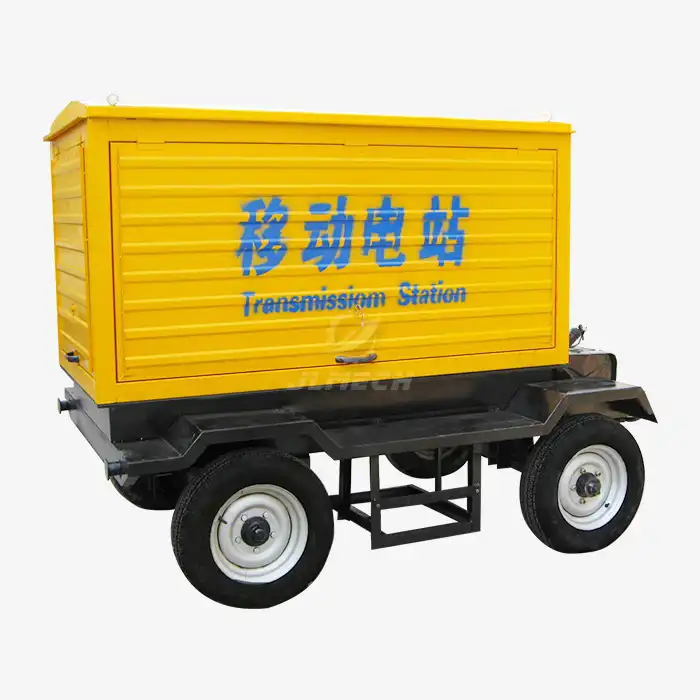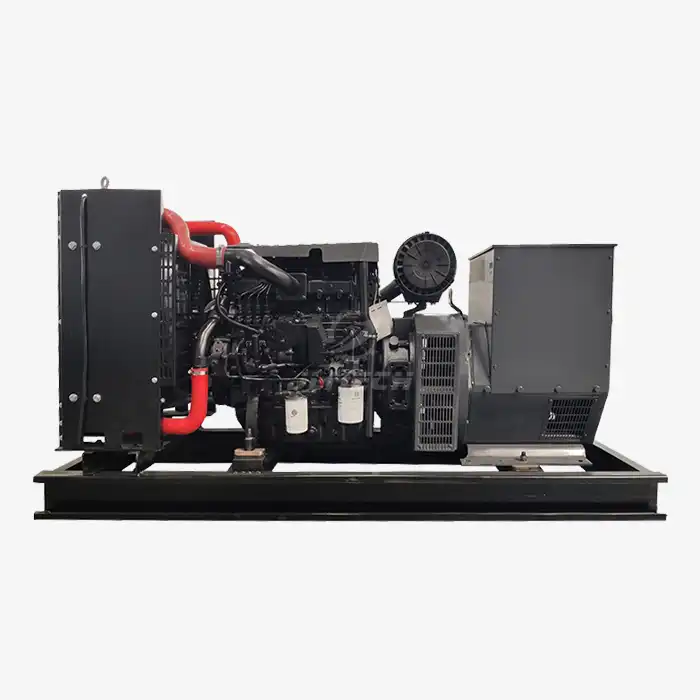Advanced fuel injection systems optimize combustion for better efficiency and lower emissions. Exhaust Gas Recirculation (EGR) reduces nitrogen oxide emissions by recirculating exhaust gases back into the engine. Selective Catalytic Reduction (SCR) systems convert harmful nitrogen oxides into harmless nitrogen and water vapor. Improved engine design, such as enhanced turbocharging and intercooling, boosts fuel economy and reduces emissions. Sophisticated electronic control units precisely adjust engine parameters, ensuring optimal performance while minimizing environmental impact. These advancements help modern diesel generators meet strict emission standards without compromising power output.

Do modern 220v diesel generators meet EPA emission standards?
The Environmental Protection Agency (EPA) has established rigorous emission standards for diesel engines, including those used in generators. These standards aim to reduce air pollution and protect public health. The good news is that many modern 220v diesel generators are indeed designed to meet or exceed these stringent requirements.
To achieve compliance, manufacturers have implemented various technologies and strategies:
Advanced Emission Control Systems
Modern diesel generators incorporate sophisticated emission control systems, such as:
- Diesel Oxidation Catalysts (DOC): These devices oxidize carbon monoxide and hydrocarbons into less harmful compounds.
- Diesel Particulate Filters (DPF): DPFs trap and remove particulate matter from the exhaust stream.
- Selective Catalytic Reduction (SCR): This technology uses a urea-based solution to convert nitrogen oxides into harmless nitrogen and water vapor.
Improved Engine Design
Manufacturers have also focused on enhancing engine design to reduce emissions at the source:
- Optimized combustion chambers for more complete fuel burning
- High-pressure common rail fuel injection systems for precise fuel delivery
- Variable geometry turbochargers for improved air-fuel mixture
These advancements allow modern 220v diesel generators to achieve the power output required for various applications while staying within the EPA's emission limits. It's worth noting that compliance with EPA standards is not just about meeting legal requirements; it also translates to more efficient operation and lower fuel consumption, which can lead to cost savings for users.
Can biodiesel reduce emissions in a 220v diesel generator?
Biodiesel has emerged as a promising alternative fuel for diesel engines, including those used in 220v diesel generators. This renewable fuel source, derived from vegetable oils or animal fats, offers several environmental benefits when compared to traditional petroleum-based diesel.
Emission Reduction Potential
Using biodiesel in a 220v diesel generator can lead to significant reductions in certain types of emissions:
- Carbon Monoxide (CO): Biodiesel can reduce CO emissions by up to 50% compared to petroleum diesel.
- Particulate Matter (PM): PM emissions can be lowered by 30-70%, depending on the blend of biodiesel used.
- Hydrocarbons (HC): Unburned HC emissions can be reduced by up to 90% with biodiesel.
- Sulfur Dioxide: Biodiesel contains virtually no sulfur, leading to near-zero sulfur dioxide emissions.
Considerations for Biodiesel Use
While biodiesel offers clear environmental advantages, there are some factors to consider when using it in a 220v diesel generator:
- Engine Compatibility: Most modern diesel engines can run on biodiesel blends without modifications, but it's essential to check the manufacturer's specifications.
- Fuel Quality: High-quality biodiesel that meets ASTM D6751 standards is crucial for optimal performance and emission reduction.
- Cold Weather Performance: Biodiesel can gel at lower temperatures than petroleum diesel, which may require additional measures in cold climates.
- Maintenance: Regular maintenance is important, as biodiesel can have a solvent effect that may clean out existing deposits in the fuel system.
It's worth noting that while biodiesel can significantly reduce most types of emissions, it may slightly increase nitrogen oxide (NOx) emissions in some cases. However, this increase is typically offset by the substantial reductions in other pollutants.
Jlmech recognizes the potential of biodiesel and has ensured that many of its 220v diesel generator models are compatible with biodiesel blends, allowing customers to take advantage of this eco-friendly fuel option while maintaining reliable power output.
How Tier 4 diesel generators balance power and low pollution?
Tier 4 emission standards represent the latest and most stringent regulations for off-road diesel engines, including those used in 220v diesel generators. These standards, set by the EPA, demand a significant reduction in particulate matter (PM) and nitrogen oxides (NOx) emissions. Achieving Tier 4 compliance while maintaining high power output has been a major engineering challenge, but modern generators have successfully struck this balance through several innovative approaches.
Advanced Engine Technologies
Tier 4 diesel generators employ cutting-edge engine technologies to minimize emissions without sacrificing power:
- High-Pressure Common Rail Fuel Injection: This system allows for precise control over fuel injection timing and quantity, optimizing combustion and reducing emissions.
- Variable Geometry Turbochargers: These devices adjust airflow based on engine load, improving efficiency across different operating conditions.
- Exhaust Gas Recirculation (EGR): By recirculating a portion of exhaust gases back into the combustion chamber, EGR systems reduce NOx formation.
Aftertreatment Systems
In addition to engine improvements, Tier 4 generators utilize sophisticated aftertreatment systems:
- Diesel Oxidation Catalysts (DOC): These devices oxidize carbon monoxide and hydrocarbons into less harmful compounds.
- Diesel Particulate Filters (DPF): DPFs capture and store particulate matter, significantly reducing PM emissions.
- Selective Catalytic Reduction (SCR): This technology uses a urea-based solution (Diesel Exhaust Fluid) to convert NOx into harmless nitrogen and water vapor.
The combination of these technologies allows Tier 4 diesel generators to achieve remarkably low emission levels while maintaining the power output necessary for demanding applications. For instance, compared to Tier 3 standards, Tier 4 Final regulations require a 90% reduction in PM and NOx emissions.
Jlmech has embraced Tier 4 technology in its latest line of 220v diesel generators, offering customers powerful and environmentally responsible power solutions. These generators are designed to meet the needs of industries that require reliable, high-output power while also adhering to strict environmental regulations.
Before we conclude, let's take a closer look at Jlmech's state-of-the-art 220v diesel generator offerings. Our generators are engineered to deliver exceptional performance in demanding environments, providing stable backup or primary power for a wide range of applications, including construction sites, hospitals, data centers, and off-grid operations.
Key features of our 220v diesel generators include:
- Power Output: Customizable from 20kW to 500kW, catering to diverse power needs
- Voltage Options: Available in 380V/400V configurations
- Frequency: Standard 50Hz operation
- Design Types: Choose between silent or open frame models
- Cooling Method: Efficient water cooling system
- Starting Method: Reliable electric starting
- Customization: OEM/ODM options available for bulk orders
- Certifications: Compliant with CE, Euro 5, EPA, and CARB standards
- Fuel Tank Capacity: Ranges from 100L to 1,500L for extended runtime
- Noise Level: ≤65 dB(A) at 7 meters, suitable for noise-sensitive environments
- Voltage Stability: Maintains ±1% stability, crucial for sensitive equipment
- Compact Design: Space-efficient solutions for constrained sites
Our generators are renowned for their high efficiency, which translates to optimized fuel consumption and reduced operational costs. The advanced soundproofing technology ensures compliance with urban noise regulations, making them suitable for a variety of settings. Moreover, all our models meet or exceed CE, ISO8528, and EPA Tier 4 emission standards, demonstrating our commitment to environmental responsibility.
To enhance versatility, we offer wheel-kit options for easy relocation, addressing the needs of customers who require portable power solutions. Backed by our comprehensive after-sales service, including a 2-year warranty, lifetime technical support, and access to genuine spare parts, Jlmech ensures that your power needs are met with reliability and efficiency.
Conclusion
The evolution of diesel generator technology has made significant strides in reducing emissions while maintaining power output. From meeting EPA standards to incorporating biodiesel compatibility and achieving Tier 4 compliance, modern 220v diesel generators have become more environmentally friendly without compromising on performance. These advancements not only benefit the environment but also offer improved efficiency and potential cost savings for users across various industries.
Are you looking for a powerful, efficient, and environmentally responsible power solution for your business? Look no further than Jlmech's range of cutting-edge 220v diesel generators. With our expertise in serving industries from manufacturing and construction to healthcare and hospitality, we understand the unique power needs of diverse sectors. Our generators are designed to meet the most stringent emissions standards while delivering the reliable, high-capacity power you depend on.
Whether you need a compact generator for urban settings or a robust solution for harsh environments, Jlmech has the perfect fit for you. Our generators offer the fuel efficiency, compliance, and after-sales support that discerning customers demand. Don't let power issues hold your business back. Contact us today at skala@whjlmech.com to discover how our 220v diesel generators can provide the clean, reliable power your operations require.
References
1. Environmental Protection Agency. (2021). "Regulations for Emissions from Heavy Equipment with Compression-Ignition (Diesel) Engines."
2. Diesel Technology Forum. (2020). "Clean Diesel Technology for Off-Road Engines and Equipment: Tier 4 and More."
3. National Renewable Energy Laboratory. (2019). "Biodiesel Handling and Use Guide."
4. SAE International. (2018). "Advances in Diesel Engine Technologies for European Passenger Cars."
5. Journal of Energy Engineering. (2022). "Emission Reduction Strategies for Modern Diesel Generators."
6. Power Systems Research. (2021). "Global Market Analysis: Tier 4 Diesel Generators."



